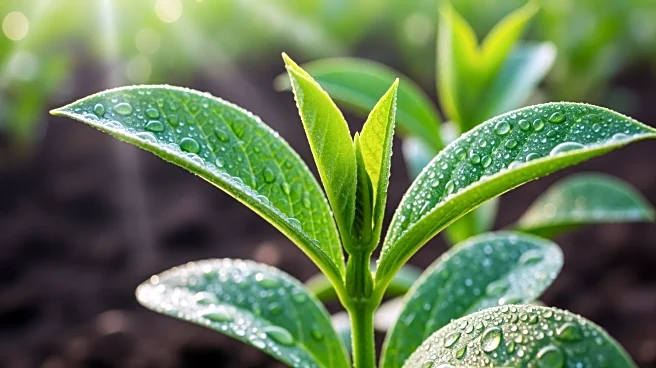What's Happening?
The AgroChem Summit 2025, organized by Indian Chemical News, is set to address the development of climate-resilient agrochemicals to adapt to changing agricultural patterns. The summit, themed 'Driving
Sustainability, Balancing Productivity,' will feature discussions on the necessity of agrochemicals that can withstand the unpredictable effects of climate change. Experts from various sectors will discuss the challenges and innovations required to create agrochemicals that are both effective and environmentally friendly. The summit aims to foster collaboration among stakeholders to promote sustainable agricultural practices.
Why It's Important?
As climate change continues to impact agriculture, the development of resilient agrochemicals is crucial for maintaining crop productivity and addressing new challenges such as increased pest pressure and altered soil health. The summit highlights the need for innovation in agrochemical development to ensure they can perform under variable climate conditions. This is vital for food security and the sustainability of agricultural systems globally. The discussions could lead to advancements in eco-friendly agrochemical solutions and influence policy decisions regarding agricultural practices.
What's Next?
The summit may result in increased collaboration between public and private sectors to drive innovation in agrochemical development. Stakeholders might focus on creating more targeted and efficient products that minimize environmental harm. There could be a push for regulatory changes to support the adoption of new-generation agrochemicals and Integrated Pest Management techniques. The outcomes of the summit could influence future research and development initiatives in the agrochemical industry.
Beyond the Headlines
The ethical considerations of developing agrochemicals that balance productivity with environmental sustainability are significant. The summit could lead to a shift in how agrochemicals are perceived, with a greater emphasis on their role in sustainable agriculture. Long-term, this could impact global agricultural practices and contribute to the resilience of food systems against climate change.











